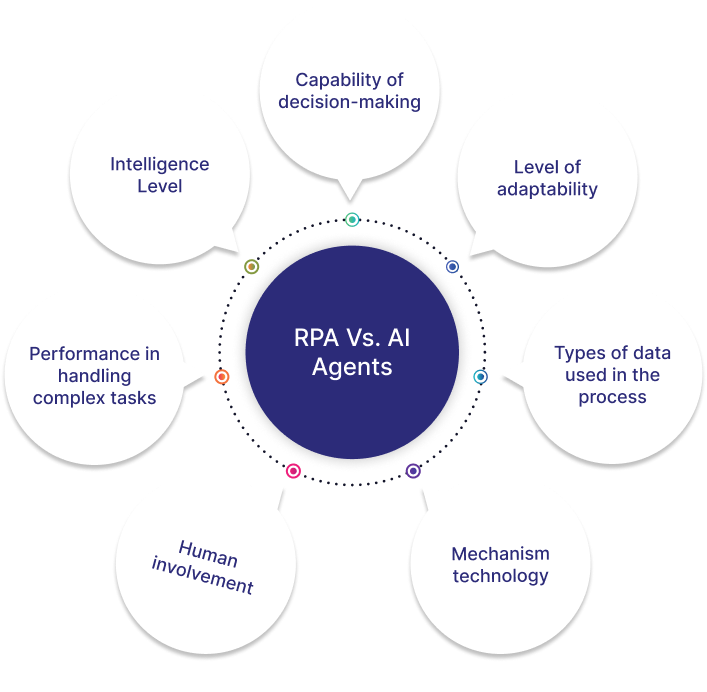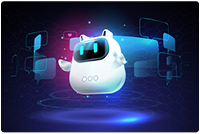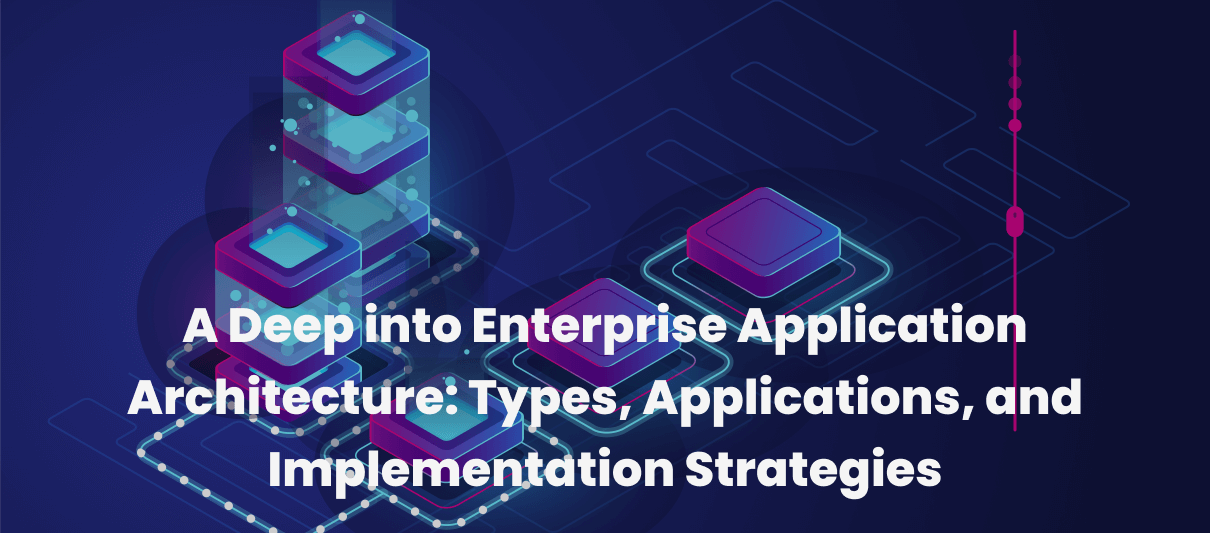RPA vs. AI Agents for Automation: Understanding Key Differences, Roles, Benefits, and Use Cases
Introduction
In response to the new-age trends, automating business operations has become the need of the hour for companies across all industries. Automation helps to enhance efficiency and optimizes resource utilization and work processes. Regardless of a business’s size, nature, or industry, integrating automation into the organizational infrastructure has become imperative for all businesses. However, two technological advancements are prominent in this context- Artificial Intelligence (AI) and Robotic Process Automation (RPA). You must have heard about both of them. Although they both are automation technologies, they have different capabilities and serve distinct purposes. Therefore, dilemmas arise about understanding RPA vs. AI agents. While some people are confused about whether RPA and AI are the same, some become skeptical about which one can ensure better profits for them. Hence, this blog is here to discuss the key differences between RPA and AI agents for automation, their benefits, industrial roles, and use cases.
A Brief Overview of RPA and AI
Robotic process automation is the process of using software robots, which are advanced computerized programs, to automate and standardize repeatable processes in a business. RPA technology broadly involves building, deploying, and managing robotic systems that can perform a wide variety of defined tasks with the help of given scripts. Being a robust alternative to manual labor for repetitive tasks, RPA helps to accelerate digital transformation within a business.
Artificial Intelligence, on the other hand, refers to systems that stimulate require human intelligence by using algorithms, data, and advanced computational power. The latest versions of AI agents like generative AI (gen AI), can create, learn, and evolve using the technologies of machine learning (ML) and deep learning. Although, with human intervention, AI provides better outcomes, the technology works well even without any human support. In other words, while RPA is a technology that imitates a man’s repetitive actions, AI is all about cognitive automation or automation of human thoughts.
RPA Vs. AI Agents: 7 Key Differences between them
To stay competitive and successful in this present digital era, every business needs to embrace RPA and AI to automate diverse business processes. Both technologies with their distinctive aspects can help to skyrocket your business growth. However, here are the key differences between AI and RPA that you should understand so that you can integrate them accordingly into your business and leverage the benefits at their best.

(Image related to RPA Vs. AI Agents: 7 Key Differences between them)
Capability of decision-making
Run by pre-programmed logic and fixed inputs, RPA is not able to make autonomous decisions. It cannot make decisions independently without human support. On the other hand, AI is designed to make decisions based on complex logic and insights, simulating human reasoning. In dynamic situations, AI agents can utilize probabilistic reasoning, data, and computerized systems to understand the situation, predict future possibilities, and make decisions that lead to maximum beneficial results.
Level of adaptability
RPA does not have any learning capabilities. It does not learn anything or improve their performance in any way from the repetitive tasks they do. Therefore, it becomes impossible for RPA to adapt to changing situations without any manual support. AI, however, has the capability to learn from its experience and available data, with which it can modify its performance according to the different cases. AI agents can adjust their algorithms when their operational context or input data is changed. Thus, they remain relevant and useful even in unforeseen circumstances.
Types of data used in the process
RPA mostly uses structured data which is given to it in a well-defined format like data sets given in a spreadsheet or database. Based on clear data patterns, RPA identifies and extracts the required data and automates the repetitive tasks. On the other hand, AI agents can work with unstructured, raw data including texts, images, and also natural languages. They can extract meaningful patterns and insights even from unorganized data coming from resources like customer reviews, social media posts, etc., and automate business operations e.g. customer sentiment analysis, market research, etc.
Mechanism technology
An RPA system works with given scripts or sets of instructions that emulate human processes to perform repetitive tasks which it uses to execute the tasks autonomously. While performing the repetitive tasks between enterprise and productivity applications, RPA combines APIs and UI (User Interface) reactions. On the other hand, AI agents work by combining iterative processing algorithms with large sets of data and learning from the patterns and features in the data. Based on ML and deep learning, eventually, the agents measure their own performance and improve it with additional expertise.
Human involvement
Although, with human support both AI and RPA can perform better, RPA cannot work independently without well-structured data set up in a clear field with human efforts. On the contrary, AI agents can analyze the given unstructured data and make comprehensive decisions without human intervention. Therefore, when it comes to working with unstructured or unorganized data, RPA technology needs to be clubbed with AI or ML models.
Performance in handling complex tasks
RPA or robotic process automation is ideal for repetitive and simple tasks that require a clear set of instructions whereas AI agents can handle tasks that require reasoning and judgement. They can perform the tasks that need critical human thinking. RPA automates simple, routine tasks across different systems and platforms which makes it different from AI as it is known for making critical decisions by using advanced algorithms.
Intelligence Level
When compared in terms of intelligence level, AI agents are considered to be more intelligent than RPA. Artificial intelligence can imitate human intelligence whereas robotic process automation technology majorly focuses on imitating human abilities to do repetitive tasks after being given a pre-defined set of rules. Additionally, RPA does not have the ability to learn or adapt which AI has. RPA becomes more intelligent when combined with AI and the intelligent agent in AI comes into play.
While discussing the details of RPA vs. AI agents, the differences showcase how they serve different purposes, yet are indispensable parts of technological support that all industries require. While RPA technology reduces human labor and errors in repetitive tasks, AI agents including generative AI and intelligent agents (IA) can model human behavior. The agents can use human-like thinking to solve complex problems.
Benefits of Using RPA and AI Agents
Both RPA process automation and artificial intelligence (AI) are beneficial with their distinctive features. By integrating them into your organizational system, you can ensure customer satisfaction and boost employee morale at the same time, while reducing the operational costs within a business. The benefits of RPA are:

- Ensures accuracy and reduces the cost associated with error rectification
- Helps to comply with audit trails
- Completes tasks faster
- Improves operational efficiency
- Eliminates redundancy in performance
- Reduces employees’ boredom and increases productivity
On the other hand, the advantages of using AI to automate business processes must not be ignored. The benefits include:
- Helps companies to customize their services or products as per the choices and preferences of the target market
- Helps businesses to gain competitive advantages by providing enhanced customer experience
- Enables businesses to perform robust R&D programs and innovate new ideas and products
- Ensures better efficiency at business operations resulting in better outcomes
- Helps businesses make accurate decisions by providing real-time data and insights
- Promotes initiating new capabilities and expanding the business model
AI and RPA, with all their benefits, are becoming significantly relevant in business infrastructures in the UAE. Generative AI vs. RPA is also another crucial matter of discussion as generative AI is growing popular these days for its ability to create new texts, images, and other outcomes. However, by combining RPA and AI agents, you can help your business flourish and reach the zenith of success.
Understanding the Roles of RPA and AI Agents for Automation
There is nothing better than automation to reduce operational costs and enhance productivity within a business. Here are the crucial roles of RPA and AI agents in ensuring comprehensive automation within any business structure.
The roles of RPA across industries are:
- Streamlining data management system including error-free data extraction, cleaning, transfer among systems, and entry
- Repetitive database updation
- Complex calculation task handling with improved speed and efficiency
- Automated regular follow-ups to maintain compliance with updated regulations
- Formatting Excel sheets and emails
Thus, efficiency, accuracy, and customer satisfaction are ensured with RPA technology. Besides this, the roles of AI across industries enhance the scope of the automation system within any company. The roles of AI across various industries include:
- Prompt and useful customer support by using tech-advanced facilities like chatbot
- Data quality improvement with additional inputs
- Detection of patterns or anomalies in large data sets by using machine learning (ML)algorithms
- Predictive analysis to identify possible outcomes of any operation
- Improved communication among employees and between a company and its customers
- Navigating risk management by using AI-powered sensors and algorithms
By performing these diverse roles, RPA and AI help businesses overcome numerous odds and stay ahead of their competitors with their modern and new-age approach in the industries.
RPA vs. AI Agents: Common Use Cases
Whether it is updating customer details, price inputs for products, or other similar repetitive tasks, they can be handled well with robotic process automation. AI also helps in understanding human behavior, answering complicated questions, and making data-driven decisions. Here are some of the real-time use cases of RPA and AI.
The common use cases of RPA across industries are:
- Invoice processing in the corporate offices, manufacturing units, etc.
- Credit checks and loan application processing in insurance offices
- Patient outreach in healthcare sectors
- Customer data updation in retail
- Payroll distribution across industries
- Visitors record input in the hospitality sector
- Shipment scheduling and tracking in supply chain and logistics management
So far, we discussed the use cases of robotic process automation which adds convenience and comfort to the lives of people who are associated with businesses across industries. Alongside, the common use cases of AI across various industries are:
- Customized treatment plans for patients in the medical sector by analyzing genomic data, and patients’ information and using predictive analysis
- Dynamic pricing optimization in retail
- Transportation route optimization
- AI-powered chatbots as booking assistants in the travel and tourism industries
- Personalized food and lodging packages for guests in the hospitality sector
- Automated property valuation in real estate
- Smart recommendations and beauty and salon industries
From retail, healthcare, beauty, and hospitality to real estate, logistics, travel, etc. all industries have wide scopes to leverage the advantages of RPA and AI. However, companies should focus on finding the right software partner, with whom integrating the automation technologies becomes safe and easy.
About SquareOne
As one of the most trusted software companies, partnered with diverse industry leaders, SquareOne helps businesses improve their capabilities with new-age digital solutions including automation technologies. With an experienced and talented workforce, SquareOne offers world-class software solutions including artificial intelligence, robotic process automation, content management, data management, and so on. Ensuring customer delight is a priority for the company.
Final Words
If RPA can be used for what a man does, AI can be used for what that man thinks. Although RPA vs. AI is a crucial matter to discuss, combining both distinct technologies can provide the best outcome. Companies often have both structured and unstructured data that they need to utilize and automate their business processes. With the help of artificial intelligence agents and RPA technology, businesses can use existing well-formatted data and process unstructured data deriving new insights from them to serve their existing and potential customers with the best products or services. Thus, work processes in businesses go on effortlessly and company authorities can make the right decisions quickly.
















